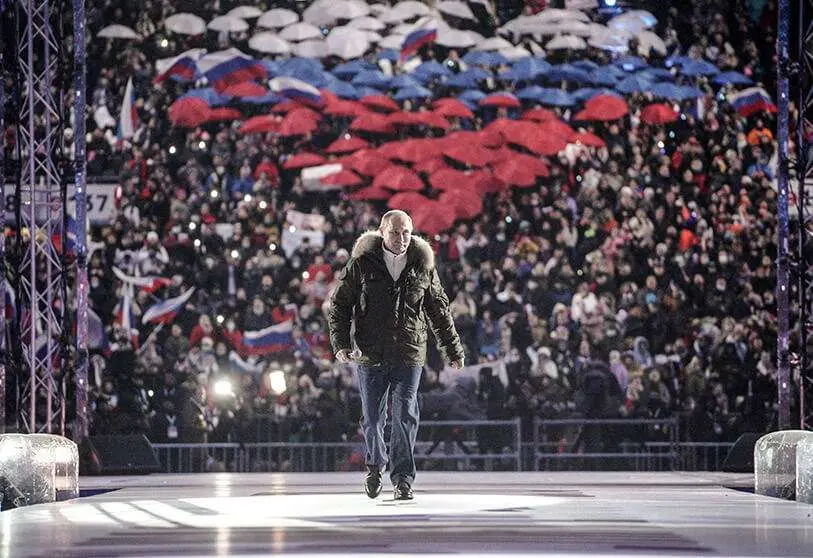Russia and the international order

Vladimir Putin's first objective with his military aggression is to change the government and determine a new sovereignty in Ukraine. On what terms is not yet clear. It will depend on the outcome of the war and the demands imposed in the negotiation. That is, it could be limited to the secession of the Donbas and Crimea provinces and their integration into the Russian Federation. Or it could add, in this legitimisation of fait accompli, some territory that would serve to unite the seceded provinces and disable access to the sea for the new Ukrainian state, as well as some other territory to enable passage through the Carpathian Mountains to Europe. Or he could aim to control the whole country through occupation, which is unlikely, or through the establishment of a proxy government, as is the case with the Belarusian government.
Putin's second objective is the imposition of a European security order, which could include demands for a ban on the deployment of certain weapons in NATO countries near or bordering areas that the Russians consider to be under their influence, both in Central Europe and in the Baltic region. Or other demands that would require the maintenance of the non-alignment of countries such as Sweden or Finland, whose status of neutrality has been questioned after the invasion by the Nordic governments themselves, fearing an escalation of Russia's geostrategic ambitions. Finally, it could pose some limitations on the capabilities of certain NATO member states such as Bulgaria and Romania, in order to re-create a new iron curtain from Belarus and Ukraine to the Black Sea.
The Russian president's third objective is to maintain great power status in the new global order and to do so from a geopolitical interpretation, where the Russian power asserts its military capacity and territorial advantage against its economic and demographic weaknesses. To this end, Russia is building and nurturing a critical and aggressive narrative abroad against democratic and liberal values in order to weaken the attraction of the Western political and cultural system on third countries. To this end, it is taking advantage of the progressive uncertainty generated by the democratic model in different regions and in specific countries, where polarisation and populism have served as an instrument of agitation thanks to connectivity.
In this order of competition and confrontation between revised powers, Russia would gain prominence as the US splits into a dual strategy in the Atlantic and Pacific, but away from Central Asia. India, a potentially unstable democracy of 1.4 billion people, would be better placed to increase energy and security arrangements with Russia. And in such a multipolar, but not bipolar (West-China) system, and with options open in the Middle East, Africa and Latin America for any power to increase its political influence, Russia would seek a strategic balance with China in Eurasia.
This speculative great power order would, however, pass over the swampy terrain of territorial claims, which, following in the wake of the Ukraine, would find solvent arguments if Russia's strategy were to succeed. China's interest in incorporating Taiwan into its sovereignty is not the only claim of the Asian power, which disputes island territories with various countries - Japan being the most notable - and aspires to consider various routes through the two seas bordering it as sovereign. In addition to other confrontations that may arise in Asia, in low-intensity territorial disputes between India and China or Pakistan and India.
By unleashing such disproportionate unilateral action in Ukraine to call for a revision of the Central European order, but whose long-term goals are more ambitious and have global consequences, Russia has been weakened in its credibility and ability to generate support. The international economic reaction and counter-offensive has sent a strong message that the imposition of a military power must be met with unity of action and a diversity of economic, defensive, humanitarian and diplomatic actors and resources. The invasion of Ukraine has made geopolitics present in today's world and has made a seamless Euro-Atlantic strategy committed to defence essential. But Russia's return to a negotiating framework would confirm that aggression is inadmissible in any proposal to reform the international order and that threats posed from military superiority cannot prevail in 21st century international relations.



